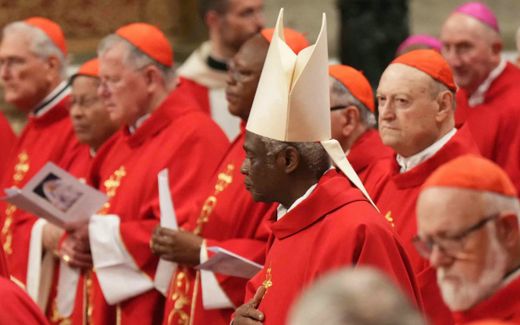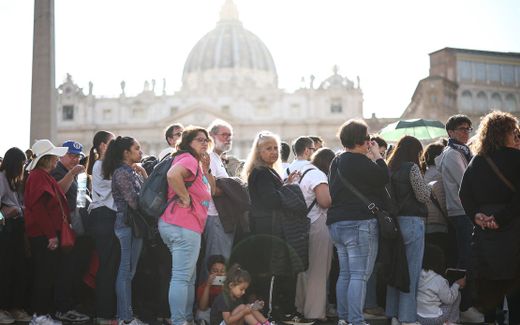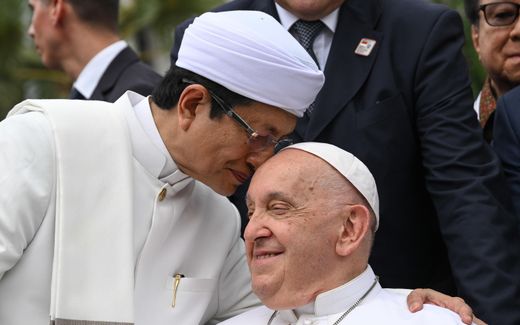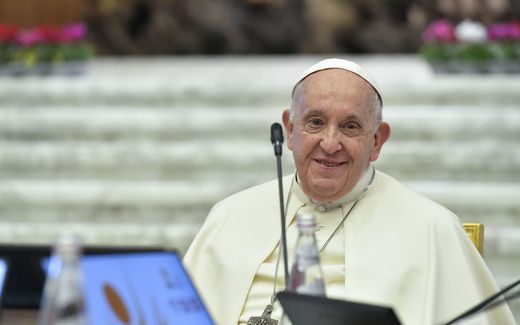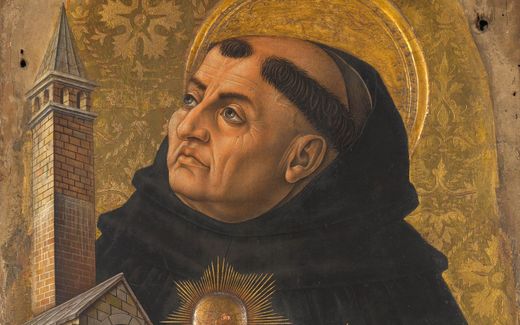Aristotle helps the Protestants to reject the Pope’s authority
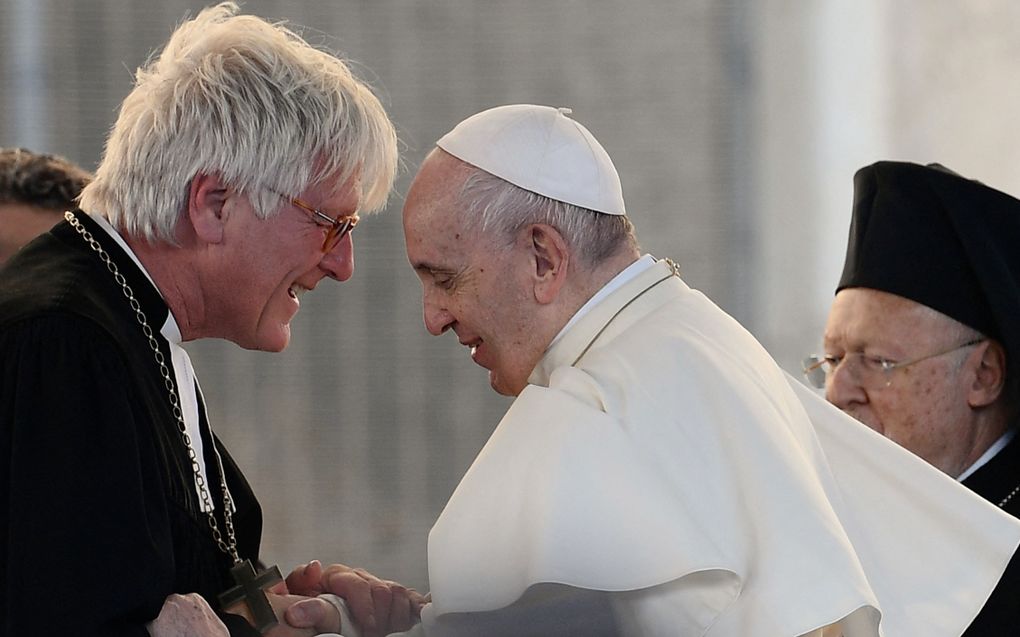
Pope Francis greeted the German Lutheran leader, bishop Bedford-Strohm (left) in 2021. Photo AFP, Filippo Monteforte
Christian Life
Protestants know that the Pope is not their authority. But often the reasons mentioned are rather superficial. Some say that we should not worship Mary or the saints because it is idolatry. Others claim that the Bible teaches nothing about the Pope.
Stay up to date with Christian news in Europe? Sign up for CNE's newsletter
All those reasons may be correct, but they do not reveal the full extent of the problem. One must understand Aristotle’s philosophy to understand the fundamental reason behind the Protestants’ rejection of the Pope’s authority.
According to Aristotle, all reality is placed on a scale of being, according to which some people are naturally of a higher value than others. This idea allowed Ancient Greece to justify slavery. Some people were born to rule, while others were born to be slaves.
Although the Roman Catholic Church of the first millennium consistently rejected it, the Italian philosopher Thomas Aquinas reintroduced Aristotle’s philosophy into Roman Catholic theology in the thirteenth century. According to what he called analogia fidei (the analogy of faith), people were once again placed in a hierarchy based on the level of grace a person had received from God.
Of course, God was at the top of the hierarchy, while Satan and hell were at the bottom. Being full of grace, Mary occupied a particularly high place, which led some even to equate her with Jesus as co-redemptrix. Next came the Pope, the vicar of Christ, the highest living person in this hierarchy. Under him came the cardinals, archbishops, and so on, while the laity was under the whole clergy.
Although a person could be a Christian, salvation was never assured. Every time a person sinned, he or she moved down the ladder of faith and thus came closer to hell. Only the sacraments –including indulgences– could bring such a person higher up the hierarchy.
Thomas’ philosophy flung open the doors of the Pope’s claim for universal temporal and spiritual power. His mixing of Greek philosophy and Christianity obscured the true message of the Gospel for the following centuries. This is why God had to raise a generation of Reformers in the sixteenth century to undo the enslaving effects of this false doctrine and to bring back the Word of God as supreme authority.
The Roman Catholic Church rejected the Reformation and continued to build its theology on Thomas Aquinas. This culminated with the First Vatican Council (1868-1870), which affirmed the Pope’s infallibility as an official doctrine. In other words, whatever the Pope affirmed was authoritative.
This same council declared that anyone rejecting this doctrine was anathema. Papal infallibility has not been abandoned in Roman Catholic doctrine ever since. This allows the Pope to occupy the de facto position of god on earth, granting for himself the authority that belongs to Christ alone.
The Reformation is far from over. The separation between Protestants and Roman Catholics is still very real, perhaps even more so now than in the sixteenth century. A Protestant who recognises that Jesus Christ is Lord and that only His Word is authoritative can in no way reconcile himself with the Greek framework underlying Roman Catholic theology.
Related Articles


